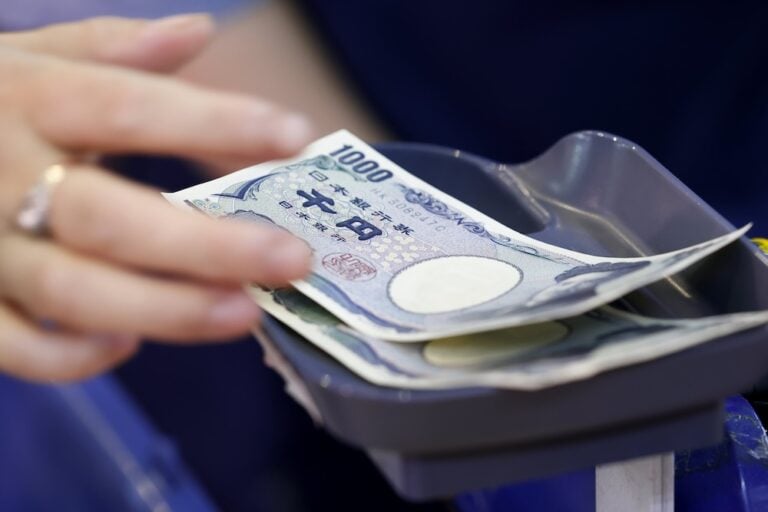
The drop in the value of the yen has brought it back to levels last seen in 1990, following Japan’s notorious “bubble economy” crash. In early May 2024, the yen was trading at 160 yen to US $1, a stark contrast to the approximately 100 yen to US $1 rate a few years prior. I think we all know by now that the Bank of Japan’s (BOJ) policies of low interest rates which were meant to spur inflation, boost bank lending, and stimulate demand have contributed greatly to the yen’s depreciation. Given the current predicament though, what are the actions we can take to make our meager earnings go farther?
If you’ve recently arrived in Japan, you’ll likely find that the savings you brought with you are stretching further than ever before. Japan’s historically low inflation rate means that housing and other goods may appear reasonable, if not downright cheap, to newcomers. If you can leverage the advantageous exchange rate, this presents opportunities to invest more time in language studies and travel before committing to work.
However, the favorable exchange rate for foreign currencies comes with a warning. If you plan to earn in Japan and send money back home, the value of your remittances now versus in previous years may be considerably reduced. The reality is that for some foreign workers, the economic advantages of working in Japan are diminishing rapidly.
The weakening yen has led to rising prices in Japan, particularly for imported goods. Personally, I’ve noticed increases in the costs of indulgent items like chocolate, nuts, and specialty ingredients. Eventually, we all face a tipping point where we decide whether to give up certain items rather than pay higher prices.
For many Japanese, the increased cost of overseas travel seems to be derailing many and they are opting to stay home and rediscover holiday spots in Japan. The cost of package trips abroad rose by 70% in the Consumer Price Index March (2024) from March 2020. Outbound travel from Japan is not expected to fully recover until about 2025 due to continuing economic and uncertain international situations. A survey by Japan Travel Bureau (JTB) showed that even though respondents had a positive view about travelling overseas, economic, and other factors still pose obstacles.
Beating Inflation
As prices increase, the question that everyone asks at the office is when will I receive a pay increase? Even though I worked in a foreign company, the salary increase occurred annually and were effective on April 1st which is about the same for Japanese domestic companies. My salary increases were always proceeded with a review of accomplishments over the past twelve months. At the start of each year, I discussed with my manager the goals and objectives for the year, and we tracked progress throughout the year through quarterly discussions. Thus, it shouldn’t have been a surprise at the end of the year if I met the expectations of my manager. This process always seemed quite fair to define up front what success for the year would like look like. The company management worked hard to distill large abstract corporate goals down to the individual contributor level.
So, did I get a pay raise? I always took into consideration both the monetary renumeration as well as the company benefits. The monthly salary is the hard currency you can use at shops, etc. but company benefits such as time off, opportunities for international travel, training, and other perks are also beneficial in building a career.
Through work and chatting with peers, each of us puts a price on our skills. If we aren’t satisfied with the renumeration we are receiving for our perceived worth, the options are to skill up to increase value or move to another company who is willing to pay more. These decisions will be influenced by an individual’s motivation, capability, and overall life plan.
Small domestic Japanese companies may not appreciate a candidate who job hops every several years, however, larger companies, who need certain expertise, realize that changing jobs and acquiring knowledge from different industries will bring a benefit to their company. As with all things though, too much job hopping is never a good thing, especially if your expertise isn’t improving with the moves. From my experience of living and working in Tokyo I see that the business community is quite small. You may be surprised at the myriad of connections that people have. This means that once your reputation is tarnished, it can follow you around and can take time to recover.
Save Money Like a Local
Living like a local in Japan means getting your point cards, smartphone apps, and other data organized to take advantage of discounts or to get monetary reimbursements. One of the best benefits I received was a 20,000-yen reimbursement to my AU (phone carrier) smartphone app for just registering the government’s ‘My Number Card’ with their online system. Switching phone/Internet carriers also included more ‘cashback’ reimbursements to my smart phone app. Neither of these payments were a life-changing financial event but they did pay for drinks at the coffee shop for a while. To tackle rising costs at the grocery store, we have bought shares in a company and receive a 5% discount on all purchases we make at the store by showing our stock owner’s card.
One of the best benefits provided by companies in Japan is that they usually cover the cost of commuting. The common practice is that you will be reimbursed for the lowest cost method of transportation to and from work. The negotiation with an employer could be more complicated if you decide to live further from a major city and commute by shinkansen (bullet train). Not all companies are willing to reimburse for shinkansen fares so before making a jump outside of the city, confirm the company’s policy on this.
The wholesale membership food store from the U.S., Costco, has several locations in Japan. They are known to have reasonable prices; however, many items are sold in bulk and the amount is usually too large for a one- or two-person household. The local equivalent of Costco is GyomuSuper. The selection may not be as large, but the size of the packaging is much more suitable for small households.
Learn to Cook
There are numerous websites offering tips on how to save on electricity, gas, apartment rent, etc. so if you’re new to the country, be sure to explore those resources. One of the biggest expenses that can quickly eat into your budget is dining out. While socializing and enjoying meals with colleagues are important for making friends and maintaining a healthy lifestyle, learning to cook a few dishes at home can significantly reduce costs.
Whether it’s Japanese cuisine or dishes from your own country, cooking at home can go a long way in saving money. Even if your Japanese language skills are limited, consider joining a local cooking class. This will not only help you understand how to use Japanese ingredients but also provide an opportunity to make new friends. I’m sure the instructor will be forgiving if you accidentally overcook the udon, as long as your efforts are genuine.
The Homemade Cooking School franchise has many locations throughout Japan and offers cooking classes covering both Japanese and western dishes. Many cooking schools usually offer an inexpensive introductory lesson to get you in the door and then do a sales pitch to sign you up for more lessons. Web sites such Street Academy offer a variety of classes taught by individuals in either their home or a public space. Prices vary on this site and there are also a wide variety of classes available.
It doesn’t look like prices will be reduced anytime soon, so find the discount shops and supermarkets in your city to help your yen go a little further. Good luck with your budgeting.


















